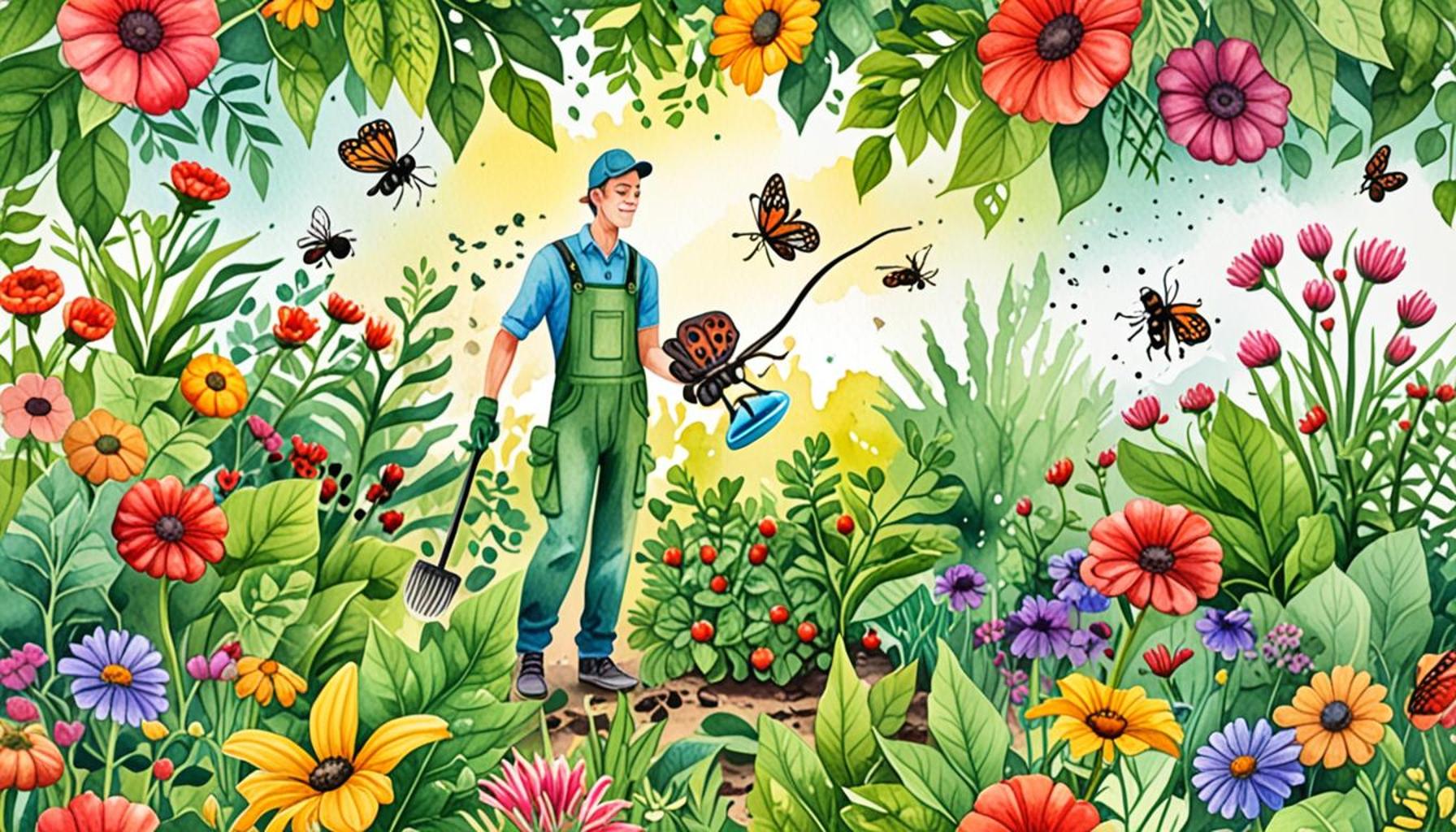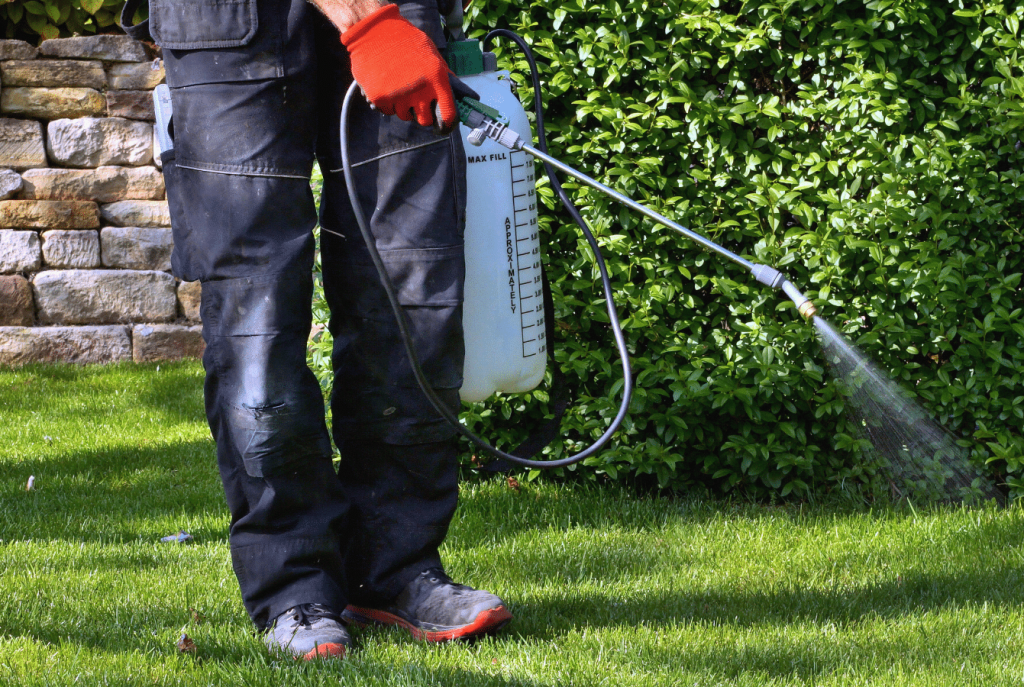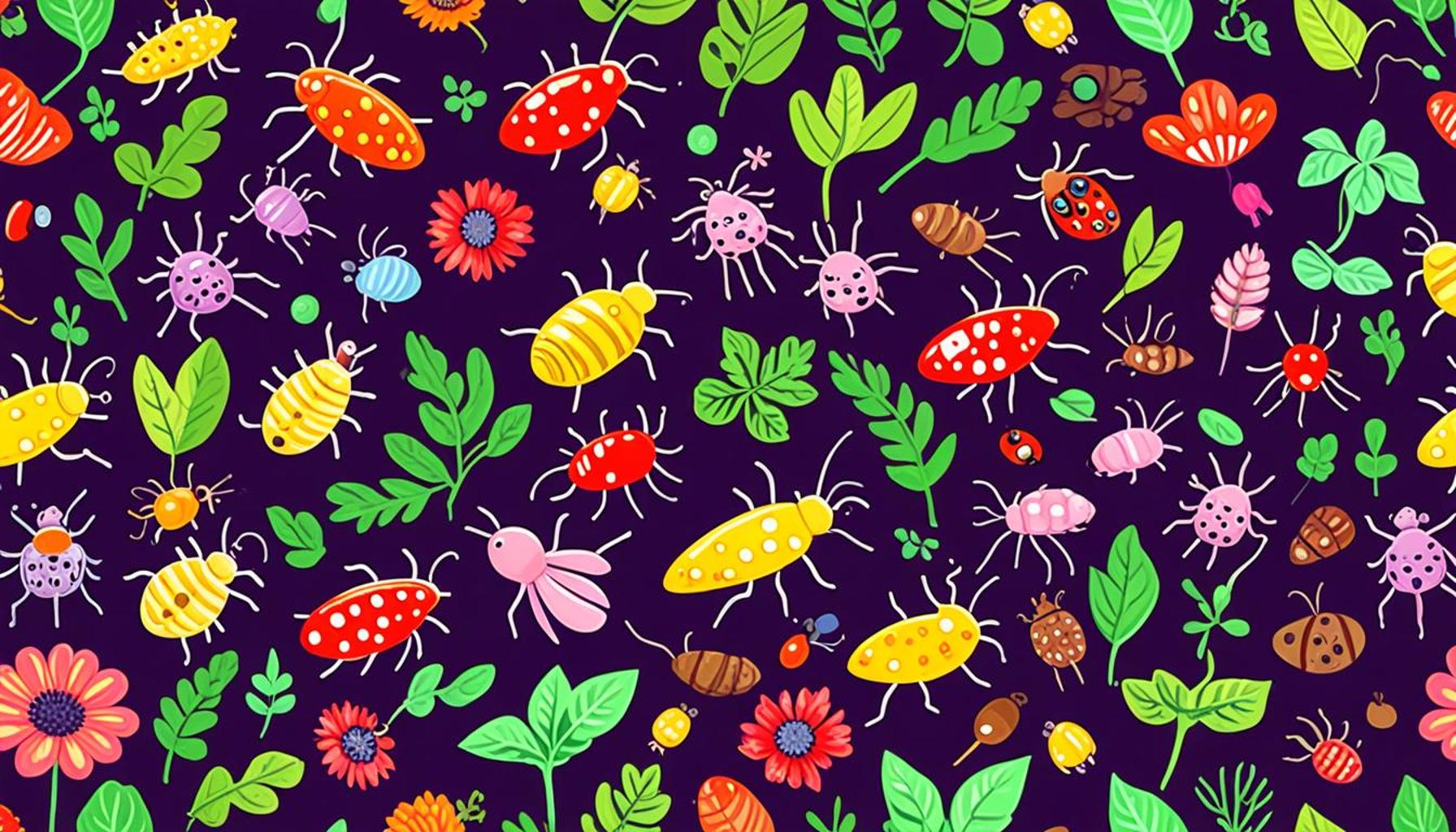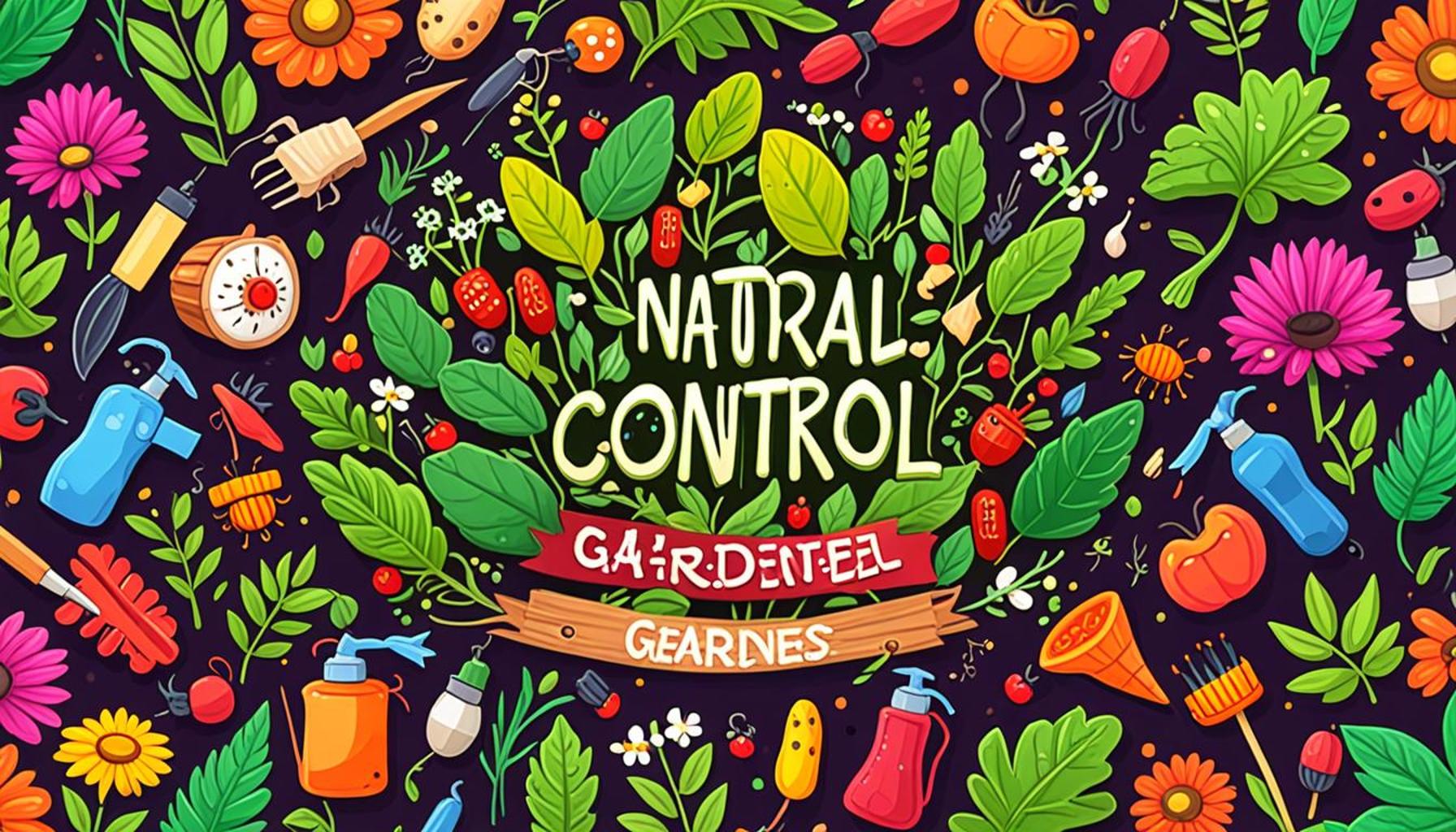Benefits of Biological Pest Control in Beginner Gardens

Understanding Biological Pest Control
Starting a garden can be an exhilarating experience, but it comes with its own set of challenges, particularly in managing pests. Many novice gardeners often resort to chemical solutions, unaware of the benefits of biological pest control. This eco-friendly approach not only preserves the health of your garden but also promotes a balanced ecosystem, making gardening a more enjoyable and sustainable endeavor.
Biological pest control involves the use of natural predators or beneficial organisms to manage pest populations. This approach can include everything from introducing insectivorous species, like ladybugs, to deploying microorganisms that target harmful soil pests. By harnessing the power of nature, gardeners can effectively deter undesirable species without resorting to synthetic chemicals.
Key Benefits
Several core advantages highlight why biological pest control is a compelling choice for gardeners:
- Environmental Safety: Unlike chemical pesticides, which can linger in the environment and adversely affect wildlife, biological methods minimize harm to beneficial insects, such as bees and butterflies, that are crucial for pollination. This ensures that your garden thrives while supporting local ecosystems.
- Soil Health: By avoiding harsh chemicals, you enhance soil quality, resulting in healthier plants. For instance, organic composts not only provide nutrients but also enrich the microbial community in your soil, contributing to effective pest deterrence and nutrient cycling.
- Sustainability: This method promotes a long-term solution to pest problems, creating a self-sustaining garden environment. Over time, by fostering natural predator-prey relationships, you’ll find that your garden becomes increasingly resilient to pest outbreaks.
Practical Examples
Implementing biological control techniques is often straightforward and cost-effective for beginner gardeners. For example, introducing ladybugs can dramatically reduce aphid populations. These small beetles can consume over 5,000 aphids in their lifetime, making them an effective pest control ally. Similarly, utilizing nematodes can target soil-dwelling pests such as grubs or root weevils, ensuring that your plants remain healthy and productive.
Join the Movement Towards Sustainability
As awareness about sustainable gardening continues to grow, exploring biological pest control will provide invaluable insights and strategies for novice gardeners. Various resources, including gardening clubs and online forums, offer further information on how to implement these methods. By diving into the world of natural pest management, you not only enhance your gardening skills but also contribute to a healthier planet.

Exploring biological pest control isn’t just about keeping pests at bay; it’s about embracing a holistic approach to gardening. This allows you to cultivate not just beautiful plants but also a thriving ecosystem. Whether you live in a bustling city or on a sprawling suburban plot, consider integrating these practices into your gardening routine for a more sustainable and rewarding gardening experience.
DISCOVER MORE: Click here to learn about self-watering systems
The Advantages of Embracing Biological Pest Control
In the realm of gardening, particularly for beginners, understanding the benefits of biological pest control is crucial in fostering a vibrant and thriving environment for plants. By shifting focus from synthetic pesticides to biological alternatives, novice gardeners can cultivate their gardens sustainably while significantly reducing environmental harm. Not only does this approach align with modern ecological practices, but it also sets the stage for long-term success and productivity.
One of the primary advantages of biological pest control is its ability to support biodiversity. By introducing beneficial insects and natural predators, gardeners enhance the ecological balance within their gardens. For instance, attracting predatory beetles and birds can minimize the presence of harmful pests, such as caterpillars or snails, thereby maintaining a natural equilibrium. This harmonious interaction dramatically decreases the need for chemical interventions, while also enriching the garden ecosystem as a whole.
Enhancing Garden Resilience
Another compelling reason to adopt biological pest control is its role in increasing the resilience of gardens against pest invasions. By establishing a diverse community of beneficial organisms, a gardener can create a buffer zone against potential outbreaks. For example, when beneficial insects are present, they not only manage existing pest populations but also prevent new ones from becoming established. Over time, as these natural controls effectively regulate pest populations, the garden becomes less susceptible to infestations, making it easier for beginners to maintain healthy plants without constant vigilance.
- Emotional Well-Being: The practice of biological pest control promotes a sense of harmony with nature, providing gardeners with emotional satisfaction as they witness the natural interactions taking place.
- Cost-Effectiveness: Investing in biological controls often saves money in the long run, as the need for continual chemical applications diminishes.
- Education and Engagement: Engaging with biological pest control encourages gardeners to observe and understand their ecosystem, fostering a deeper connection to their gardening practice.
Moreover, using biological methods can significantly enhance the health of the garden’s microenvironment. For example, introducing soil microorganisms that prey on pest larvae can vastly improve soil health, enhancing nutrient availability to plants and generating a thriving subsurface community. This means healthier plants that are more capable of resisting diseases and pests naturally. As beginners embrace this holistic approach, they are likely to witness first-hand the myriad benefits of a healthier, more productive garden.
Enjoy the Journey with Biological Pest Control
As novice gardeners venture into the realm of natural pest management, the pathway to sustainability becomes clearer. Not only does biological pest control offer an effective solution to pest challenges, but it also transforms the gardening experience into an educational and rewarding journey. By choosing biological methods, gardeners can unlock a plethora of benefits while fostering a rich and diverse garden ecosystem that thrives for years to come.
| Category | Advantages |
|---|---|
| Environmentally Friendly | Minimizes chemical usage, protecting local wildlife and reducing pollution. |
| Natural Pest Control | Utilizes natural predators to manage pest populations without harmful toxins. |
| Long-term Solutions | Encourages a balanced ecosystem, which can lead to sustainable gardening practices. |
| Supports Biodiversity | Helps maintain a diverse population of beneficial insects and plants. |
| Safer for Children and Pets | Reduces the risks associated with chemical pesticides, creating a safe space. |
The use of biological pest control in beginner gardens is a revolutionary approach worth exploring. Gardening novices can benefit from these advantages, allowing them to cultivate a thriving garden while promoting a healthy environment. Organic gardening is essential as it not only yields edible plants but also enriches the soil and fosters a natural ecosystem. By using beneficial insects such as ladybugs and lacewings, gardeners can skillfully manage pest outbreaks without resorting to dangerous chemicals.Moreover, implementing biological pest control strategies can lead to significant cost savings over time. Instead of constantly purchasing chemical pesticides, gardeners can introduce natural predators that require minimal maintenance, aligning with a more sustainable lifestyle. With the added benefit of enhancing soil health, it presents an innovative way for beginners to engage in responsible gardening that contributes positively to their local ecology. Embracing these methods opens the door to endless possibilities and ultimately encourages a deeper connection with the garden.
DISCOVER MORE: Click here for effective irrigation tips
Cultivating a Healthy Garden Ecosystem
In the quest for a flourishing garden, beginner gardeners often overlook the intricate world of soil health and its direct impact on pest management. Biological pest control not only addresses above-ground pest issues but also aids in maintaining below-ground health, affecting the entire ecosystem. For instance, when native plants are integrated into the garden, they establish a network of relationships with local microbes and beneficial organisms, which in turn contributes to improved soil vitality. This interconnectedness nurtures a robust underground community that supports plant growth and resilience against pest invasions.
The Role of Natural Predators
Introducing natural predators as a biological pest control strategy can have profound implications for controlling pest populations. For example, ladybugs are well-known for their appetite for aphids, and their presence can drastically reduce the number of these pests without the adverse effects associated with chemical pesticides. Moreover, gardeners can release parasitic wasps, which lay their eggs inside pest larvae, ultimately leading to the decline of infestation levels. Such biological control agents are not only effective but also serve to sustain a healthy ecosystem in the garden.
- Seasonal Adaptability: Many biological controls have natural seasonal cycles, allowing them to adapt to changing garden conditions and ensuring ongoing pest management without additional effort from the gardener.
- Pollinator Attraction: Implementing biological pest control means attracting more pollinators, such as bees and butterflies, resulting in better pollination of plants and higher yields.
- Minimal Chemical Runoff: Utilizing biological methods reduces the risk of chemical runoff into local waterways, helping to safeguard aquatic ecosystems and maintain clean water sources.
Another significant aspect of embracing biological pest control is the promotion of natural pest resistance among plants. When gardens are subjected to controllable pest pressures, plants can develop stronger defenses over time. This phenomenon, known as induced resistance, allows plants to fend off pest attacks more effectively, resulting in a more robust and fruitful garden. A beginner gardener can foster this resilience by practicing crop rotation and companion planting, evident strategies in organic gardening that contribute to overall plant health.
Building Community Through Knowledge
The adoption of biological pest control techniques fosters a sense of connection among gardeners, creating opportunities for knowledge-sharing within communities. As local gardeners exchange tips about successful biological control measures, they cultivate a supportive network that thrives on shared experiences and learning. Community gardens, in particular, often showcase these practices, where individuals can collectively manage pests while exchanging information and resources.
Integrating biological pest control in beginner gardens not only supports individual growth but also nourishes a broader community commitment to sustainable gardening practices. Through education, collaboration, and hands-on experiences, novice gardeners will find that the benefits extend beyond their backyards, promoting environmental stewardship and ecological awareness throughout the neighborhood.
DISCOVER MORE: Click here to enhance your plant selection skills
Conclusion: Embracing Biological Pest Control for a Thriving Garden
In summary, the benefits of biological pest control in beginner gardens are manifold and extend well beyond mere pest management. By fostering a harmonious garden ecosystem, novice gardeners can strategically implement natural solutions that promote soil health, enhance plant resilience, and leverage the power of beneficial organisms. The introduction of natural predators, such as ladybugs and parasitic wasps, not only minimizes the reliance on harmful chemical pesticides but also creates a balanced environment where plants can thrive, attracting essential pollinators in the process.
Furthermore, as beginners adopt these sustainable practices, they cultivate a sense of community among local gardeners—sharing knowledge and resources that enrich the gardening experience. This collaboration promotes a culture of environmental stewardship and fosters a collective responsibility towards sustainable gardening methods within the neighborhood.
As we face growing concerns over chemicals in agriculture and their potential impact on health and ecosystems, the shift towards biological pest control represents a promising pathway for beginner gardeners. Not only does it nurture individual gardens, but it also contributes to the health of the planet. Ultimately, by embracing these practices, beginners lay the groundwork for a more productive, resilient, and ecologically-aware gardening journey that paves the way for future generations.


